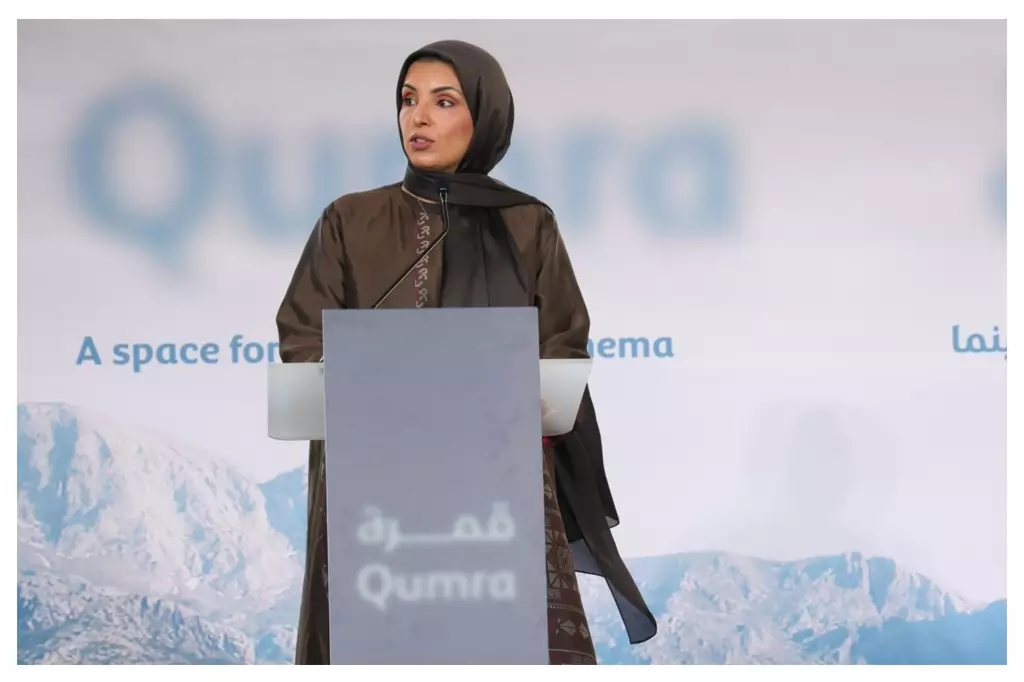In an era where violence seems to cast a long shadow over cultural narratives, the recent gathering at the Doha Film Institute’s (DFI) annual talent and project meeting could not have come at a more poignant moment. As the Israel-Gaza conflict escalates, the vulnerabilities of artists and storytellers in these turbulent times have never been more apparent. The event, attended by approximately 300 individuals, highlighted this issue forcefully, especially during the opening remarks by DFI CEO Fatma Al Remaihi. Her words resonated with urgency as she addressed concerns about the threats against marginalized voices, notably referencing the alarming attack on the Palestinian filmmaker Hamdan Ballal.
Art as a Tool for Change
Al Remaihi’s speech emphasized the importance of storytelling, positioning the DFI as a bastion for narratives often overlooked or silenced. Celebrating its 15th anniversary, the institute reflects on its foundational mission: to provide a platform for voices that need amplification in the face of sociopolitical upheaval. With the current geopolitical climate witnessing acts that challenge the very essence of humanity, Al Remaihi urged the audience to recognize the pressing need for a cultural response rooted in solidarity.
The responsibility of artists and filmmakers, especially amidst heightened tensions and violent oppression, is not just to document reality but to challenge it. Cinema possesses an unparalleled capacity to illuminate the darkest corners of society, fostering empathy and understanding where silence may otherwise prevail. The opening remarks at DFI served as a clarion call, reminding attendees that art’s potential to enact change is immeasurable.
From Recognition to Action: The Oscar Paradox
In a world where accolades such as the Oscar might typically confer some level of protection or recognition, the plight of Hamdan Ballal exemplifies a troubling paradox. His documentary, “No Other Land,” which poignantly captures the struggle of Palestinian communities in the West Bank, has coincided with an alarming uptick in violence against these very communities. Al Remaihi’s critique of the Academy of Motion Picture Arts and Sciences for its silence in light of Ballal’s situation underscores an unsettling reality: that recognition can sometimes amplify vulnerability rather than provide solace.
This discrepancy is emblematic of a broader trend in which cultural institutions struggle to engage meaningfully with pressing social issues. When Ballal, an Oscar-winning artist, finds himself under threat and experiencing systemic oppression, it raises profound questions about the role and responsibility of the global artistic community. In an environment where silence often reigns, bold voices like Al Remaihi’s remind us that the narrative of resilience needs to be told — not just in a vacuum, but as a collective action against injustice.
Finding Community Through Artistic Collaboration
As DFI opens its doors for the 11th edition of Qumra, a nurturing space for filmmakers and creatives to cultivate their visions, there is a palpable sense of urgency in the air. More than a gathering of film enthusiasts and industry professionals, it represents a sanctuary for those who dare to confront the uncomfortable truths of contemporary society. It is a space where collaboration can flourish, uniting storytellers from different backgrounds, all motivated by a shared commitment to resisting oppression.
Amidst a cultural landscape that has at times defaulted to complacency, Qumra stands as a testament to the belief that art can be revolutionary. It is a reminder that against a backdrop of chaos, filmmakers have the potential to inspire, uplift, and forge connections that transcend borders and ideologies. The platform is not simply for artistic growth but a rallying point for solidarity, fostering a creative community that is unafraid to address difficult conversations.
Hope Through the Lens
The conversations unfolding at the DFI illustrate that the power of cinema extends far beyond entertainment; it serves as a lens through which we can examine the complexities of human experience. In an age where oppression seeks to stifle voices, it is imperative that storytellers remain vigilant and passionate about their craft. Artistic expression can ignite change, providing hope and resilience even in the darkest of times.
While the challenges facing creative communities are undoubtedly formidable, the resolve demonstrated by figures like Fatma Al Remaihi illuminates a path forward. Cinema is not merely art; it is a vital resource for challenging narratives, advocating for societal change, and preserving the stories that define us—those that must be told and retold, no matter the cost. In every frame and every story, there lies the potential to ignite understanding, foster empathy, and assert the indomitable spirit of humanity against oppression.
